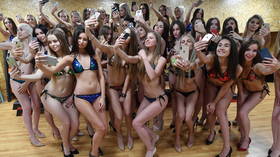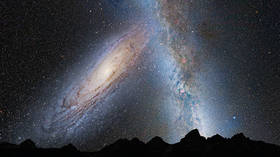'Lessons of Auschwitz': Moscow school students create VR animation tribute to Holocaust victims (VIDEO)
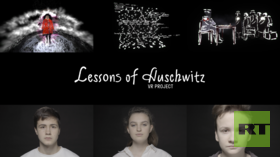
RT's digital art project dedicated to 75 years of Victory over Nazism releases VR music video illustrated by schoolchildren using tilt brush.
The music score is by Peter Theremin, great-grandson of Leon Theremin — the creator of the theremin, world's first electronic musical instrument controlled without physical contact by the performer.
This music video, part of a larger project #VictoryPages, is the result of months of preparation and work. RT teamed up with Moscow's School №548 to work with nine teenagers aged 14 to 16. The idea was to teach them how to draw in VR, educate them on the Holocaust and ask them to reproduce their emotions through digital art.
With the help from digital artist Denis Semionov and Studio Phygitalism, this project came to become much more than an extra-curriculum assignment.
"We decided to show the children one of the worst surviving memories of that war — the Polish concentration camp Auschwitz, which was liberated by the Soviet army on January 27, 1945. No articles and films can be compared with the living proof of the largest genocide - destroyed furnaces, barracks, prisoners' personal belongings." Artist Denis Semionov explains.
Thanks to the Moscow Jewish Museum and Tolerance Center, the children learned more about the Holocaust during a guided tour and a subsequent screening of Spielberg's 1994 drama based on a true story — 'Schindler's List'.
The remaining Schindler's factory in Krakow would later become the first museum they would visit during their trip to Poland.
"I chose the girl in red because when I watched this film, I really remembered her because she was wearing a red coat and the whole film was black and white so she stood out," student Dima Kaderkaev, 15, says about his choice of subject for the VR video.
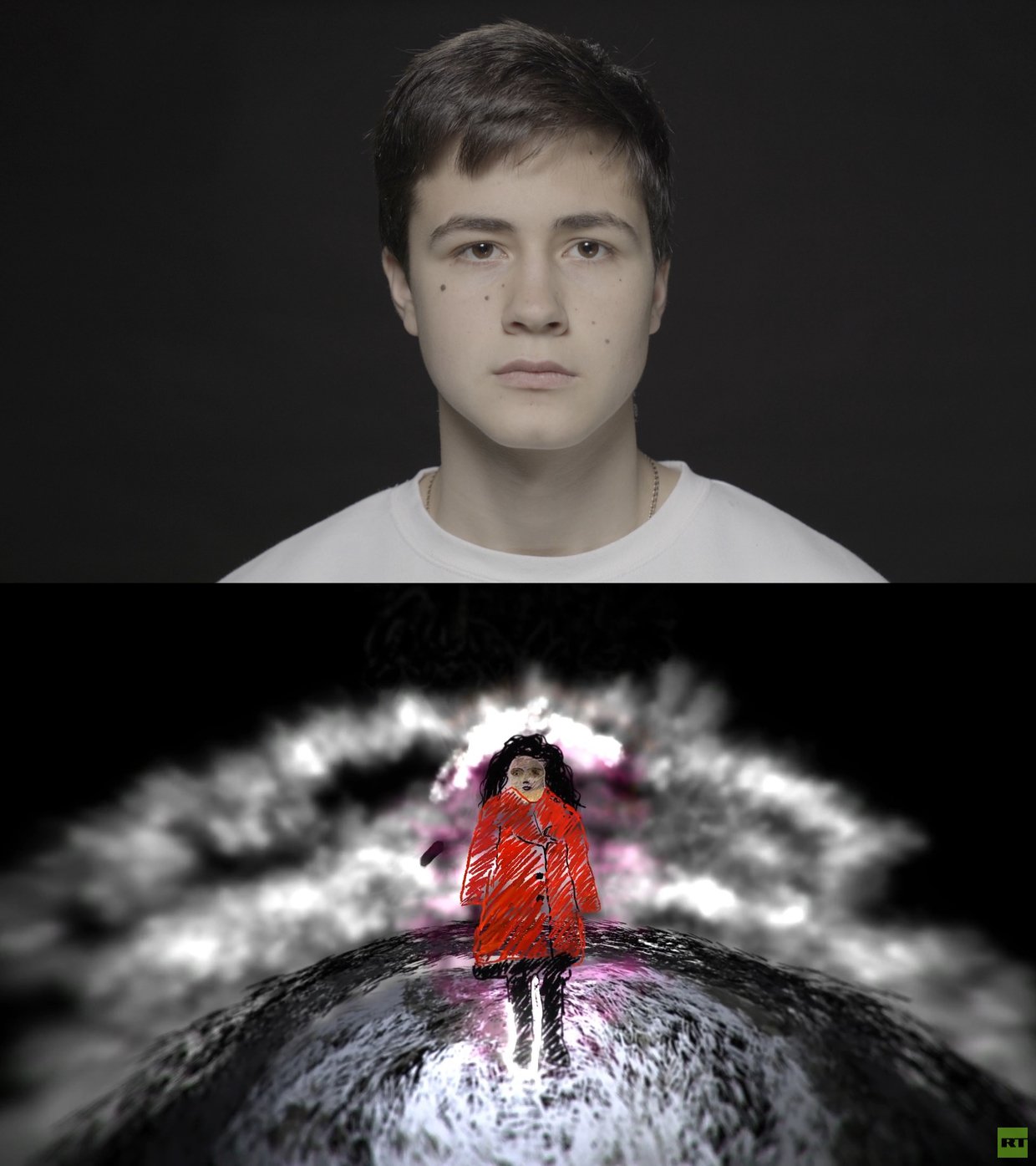
Others took to their trip for inspiration when in the early hours of a November day in 2019 they visited Auschwitz followed by Birkenau — two of the world's most terrifying reminders of human evil and the persistence of love and strength at the same time.
"My project is about the horrors that happened in Auschwitz. After I visited this camp, I was very moved and I wanted to convey all the emotions that I felt after visiting this concentration camp. In my work, you can see an endless stream of names and surnames of people: children, men and women who were killed in this concentration camp, and in the foreground we see the star of David, by which people sentenced to death were marked. The quotes popping up on the sides of the image are quotes from Holocaust survivors," Nata Makashvili explains her piece.
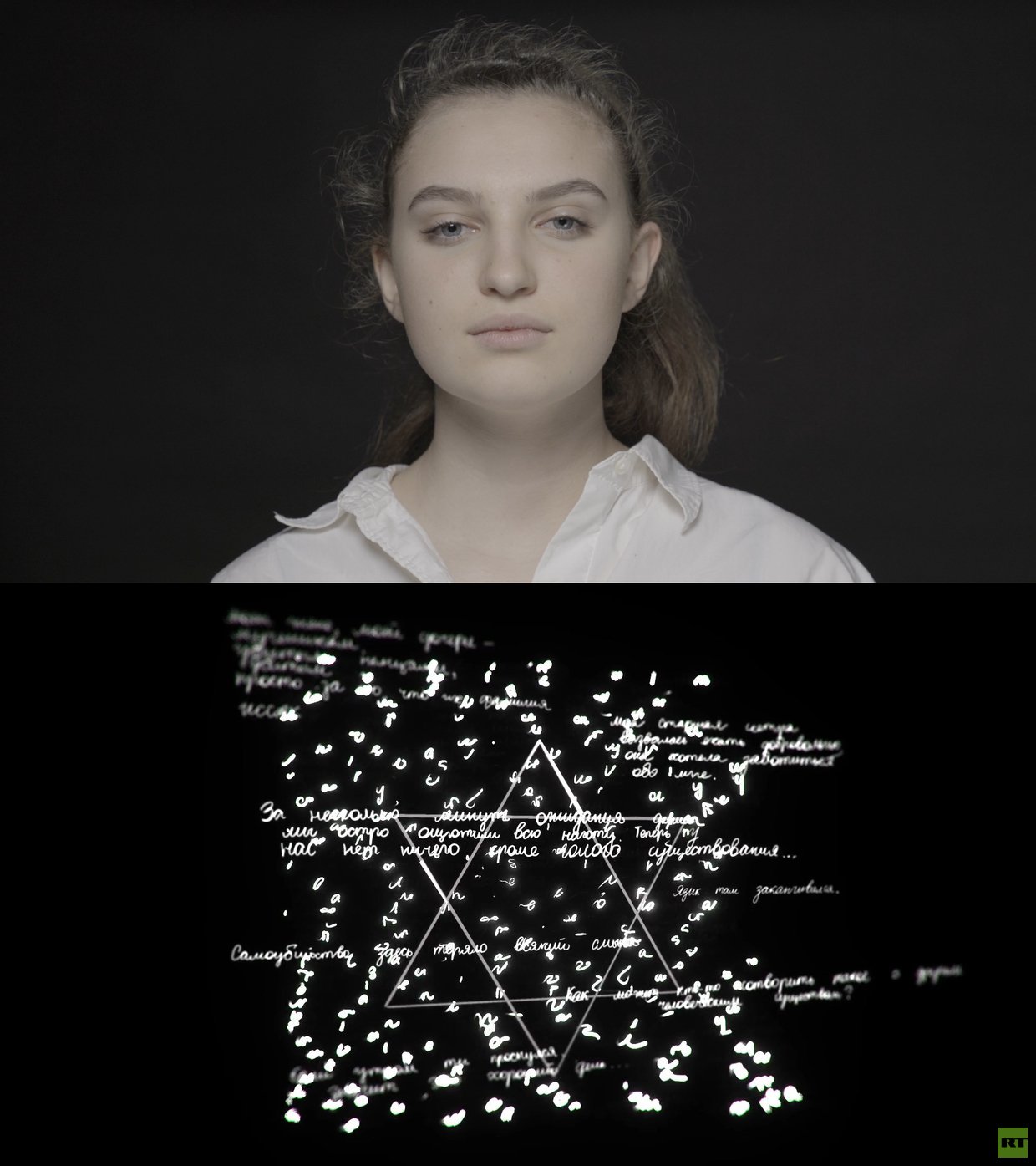
Teaming up with Peter Theremin to work with such an unusual instrument as the theremin was no coincidence. Patented by his great grandfather, Léon Theremin, in 1928, the theremin is an electronic musical instrument controlled without physical contact by the player.
The students used Tilt Brush to draw their 3D images — a program that among many other features also syncs sound and movement — a perfect match for the eerie vibrations of the theremin, an instrument creating sound from electrical waves.
Children were filmed with volumetric video — a technique capturing three-dimensional space, allowing for the images to be transformed directly into 3D where these same images would later react to sound waves.
This lengthy, yet exciting journey was all filmed along the way for a Making Of movie to be released later this year, capturing all the stages of creation the team and children went through. Shot entirely on an iPhone camera, it will come through with a hint of naivete, emphasizing a youthful view on events.
"We asked the kids to film as well, to include them all the way and make sure they felt more like creators and less like subjects in this project we truly did together. I learnt a lot from them in Poland and during our meetings in Moscow — their take on life is modern, extremely honest and sobering. I'm lucky I got to know these incredible young people," #VictoryPages producer Anna Fedorova confessed.
#VictoryPages is a versatile documentary project to play out on five social media platforms. It offers an opportunity to look at the historical magnitude of May 9, 1945 through the personal impressions of our contemporaries. The story will unfold predominantly in Russian on Facebook, YouTube, VK, Twitter and Instagram starting January 13, 2020 and will run until May 9 — the day Russia celebrates Victory over Nazism.













